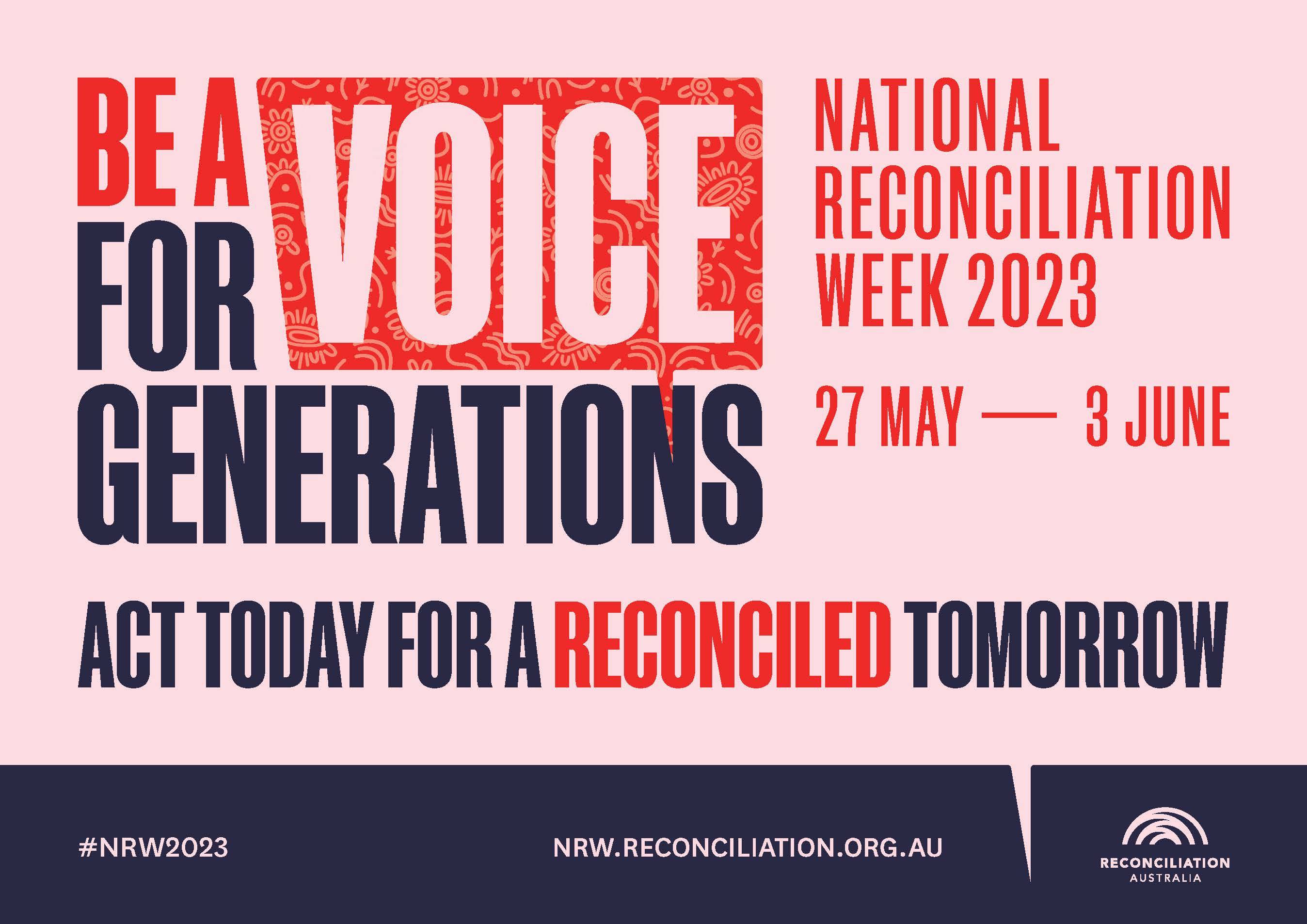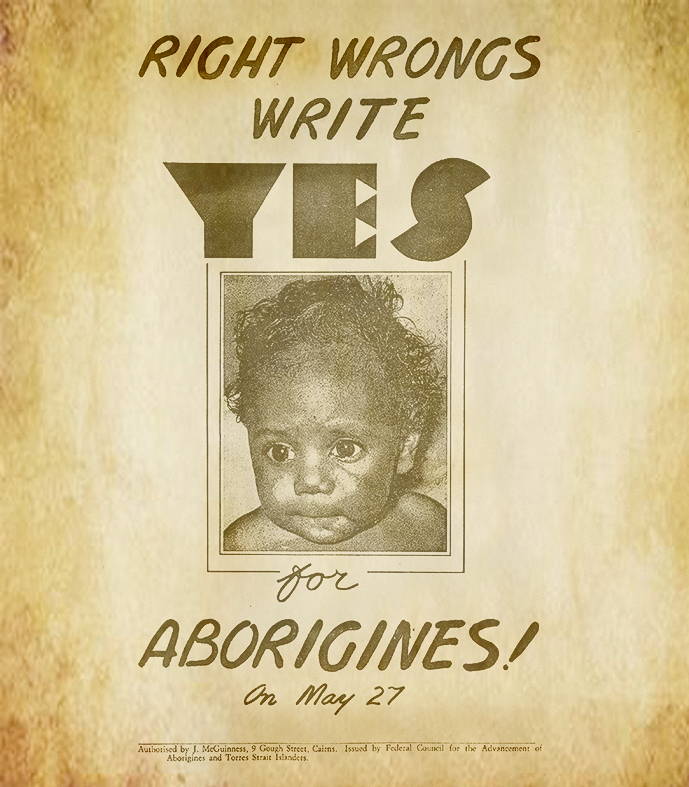Reconciliation Week
News & Events
National Reconciliation Week
teagan kum sing
March 25, 2023

The coming week marks many important dates for First Nations Australians. We observe Sorry Day, the Anniversary of the 1976 Referendum, and Mabo Day. National Reconciliation Week (NRW) is observed across Australia to encourage all Australians to learn about our shared histories and reflect on how our nation can move towards reconciliation. "At its heart, reconciliation is about strengthening relationships between Aboriginal and Torres Strait Islander peoples and non-Indigenous peoples, for the benefit of all Australians."

May 26th: National Sorry Day
On this day Australia as a nation acknowledges the mistreatment of Aboriginal and Torres Strait Islander children who were forcibly removed from their families, now known as The Stolen Generations.
Sorry Day has been observed since 1998, one year after the Bringing Them Home Reportwas released. This report was an inquiry into the policies that allowed The Stolen Generations to occur. It is essential reading for truth-telling about Australian history.
On this day we acknowledge the strength and resilience of Stolen Generations Survivors and their families. We mourn for their loss at the hands of government policies that did not protect them. Importantly, we reflect that this issue is not in the past. Today, Aboriginal and Torres Strait Islander children are still 10 times more likely than non-Indigenous children to be removed from their families. As a nation we must acknowledge the ongoing intergenerational trauma that First Nations people and Stolen Generation Survivors navigate in a post-colonial Australia. In doing so we make space for stories, voices, truth, and healing.
Sorry Day is a time to mourn, to remember, and to be honest about the history of our nation. It is a time to be with community and close ones, to support each other. Please remember that if you or someone you know requires support, reach out to The Healing Foundation, 13 YARN, or community and health initiatives you trust.
The Healing Foundation is a national Aboriginal and Torres Strait Islander organisation that provides a platform to amplify the voices and lived experience of Stolen Generations survivors and their families. They have a wealth of resources to assist in healing the ongoing trauma caused by colonisation, loss of culture and the forced removal of children. You can donate to support their work.
Further reading on National Sorry Day is available here.

Campaign poster, 1967 (AIATSIS)
May 27th: Anniversary of the 1967 Referendum
May 27th marks the official start of National Reconciliation Week (NRW) and the Anniversary of the 1967 Referendum
On this historic date in 1967, 90.77% of Australians voted YES to amend the constitution and include Indigenous peoples as part of the Australian population. This outcome was a pivotal victory for the thousands of grassroots activists, protestors, community members and organisations who believed in a more just and empowered Australia.
It is a common misconception that the 1967 referendum granted Indigenous people the right to vote. In fact, it actually focussed on census recognition and removing state control. Prior to the referendum, Indigenous peoples weren’t recognised in the population and the commonwealth government could not make laws for mob. Beyond the incredibly disrespectful connotation that our First Nations people were not a part of Australia, the absence from the population census also made gathering research and making evidence-based decisions difficult. And with states creating their own policies, there was little consultation, accountability or debate which resulted in rampant oppression, dispossession and Aboriginal Protection Acts that removed children from their families.
With the changes brought about by the referendum, Aboriginal and Torres Strait Islander people would be counted in the population and the laws regarding Indigenous people would be the same across the country. But much more significantly, achieving YES was a victory that proved the power of Indigenous leaders, organisations, determination, and agency. It raised expectations for Indigenous welfare and rights and indicated that change is possible. The referendum was the culmination of significant grassroots protests, petitions and campaigns that harnessed and expanded the changing opinion of the general population.
Further reading on the 1967 Referendum is available from the Australian Institute of Aboriginal and Torres Strait Islander Studies (AIATSIS).

NRW 2023 Poster, Reconciliation Australia
May 27th: Start of National Reconciliation Week
National Reconciliation Week (NRW) is a time for all Australians to learn about our shared history, cultures, and achievements. It is a time to confront inequality and to ask how we can contribute to achieving reconciliation in Australia.
“Reconciliation is about building a better nation; a more united Australia that respects and takes pride in 65,000 years of Aboriginal and Torres Strait Islander cultures, histories, stories and achievements; an Australia that believes in the right of First Nations peoples to make decisions about our lives and our communities; and an Australia that stands opposed to racism, inequity and injustice.” - Reconciliation Australia CEO Karen Mundine of the Bundjalung Nation
NRW runs from 27th May to 3rd June. These dates commemorate two milestone achievements in reconciliation— the 1967 Referendum and the Mabo decision.
This year’s theme is ‘Be a Voice for Generations’. Reconciliation Australia CEO, Karen Mundine says the theme “calls on Australians to honour the work of generations past who fought for justice in Australia and to work together today to tackle the unfinished business of reconciliation for the generations to come.” We recommend you explore some of the amazing resources on the Reconciliation Australia website about this year's theme, events, and action plans.
This NRW, explore Reconciliation events in your area. Learn about Indigenous and colonial history in Australia. Engage with art, writing, film and stories created by and featuring First Nations artists. And be committed to holding space for truth telling and the uplifting of First Nations voices, culture, history, and achievements.
June 3rd: Mabo Day
On June 3rd we observe Mabo Day to celebrate the successful efforts of Mer Island man Uncle Eddie 'Koiki' Mabo (deceased) to overturn the concept of terra nullius ("land belonging to no-one") that was used as legal means to justify the colonisation of Australia.
Short for "Mabo and others v Queensland No. 2", the Mabo case was led by Uncle Eddie Mabo, a Torres Strait Island Man of Mer Island who was an activist for the 1967 Referendum. The case sought legal recognition for his people's ownership of Mer Island, fighting against the concept of terra nullius, which declared that Australia and the Torres Strait Islands were unowned lands. The colonial logic behind this was that First Nations people did not ‘use’ the land in a way that settlers recognised as ownership. Therefore, it was free land for settlement. Terra nullius was an attempt to give legality and legitimacy for the dispossession of all Indigenous peoples of their land, and the Mabo case was the first time this logic was legally challenged and beaten.
The case was heard over 10 years and progressed from the Queensland Supreme Court right up to the High Court of Australia. The successful overturning of terra nullius was significant in that Indigenous peoples were finally legally recognised as the Traditional Owners of Australia and the Torres Strait Islands after years of denial. It marked a shift towards truth telling and recognition that had previously been obscured by a government lie.
Unfortunately, Uncle Eddie passed away just 5 months before his team won their case. However, his legacy and work lives on as following the Mabo decision, Australia’s Federal Parliament passed the Native Title Act 1993. This established a legal framework for native title claims throughout Australia by Aboriginal and Torres Strait Islander peoples.
You can read more about the life of Uncle Eddie here.
Love Our Blogs? Read More Articles Now!
Yarn Blog is here to bring you the latest and greatest in First Nations culture, news and shopping. You can find updates on all our best products as well as info about our fantastic collaborating artists right here. Click below to start reading.






